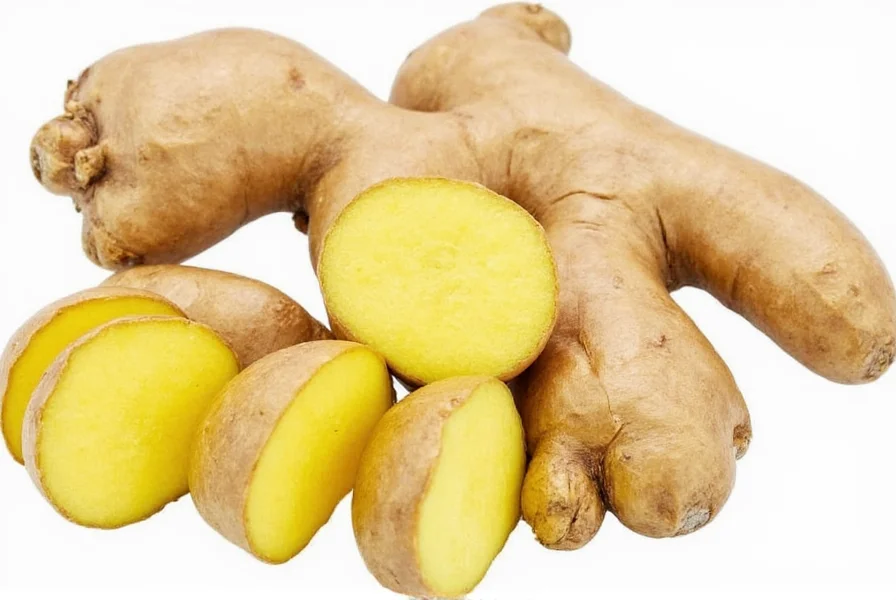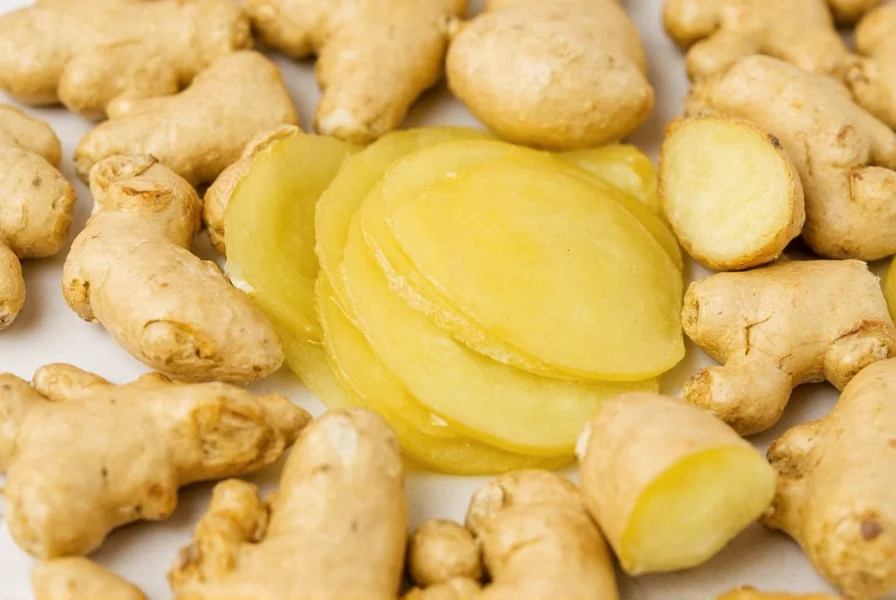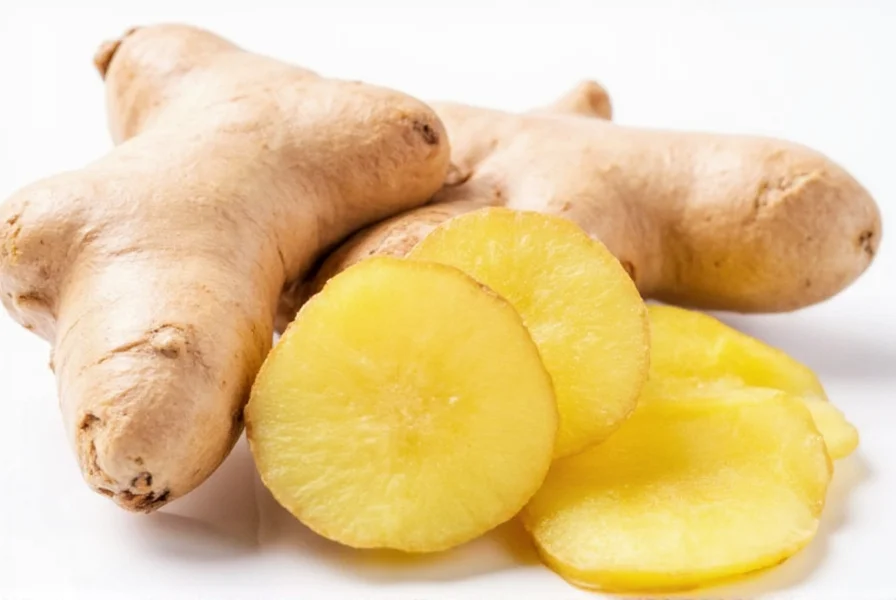Ginger has been used for centuries as a natural remedy for digestive issues, and modern science continues to validate its effectiveness. This ancient root contains powerful bioactive compounds that interact with the digestive system in multiple beneficial ways. Understanding exactly how ginger supports digestive health can help you use it more effectively for common gastrointestinal concerns.
The Science Behind Ginger's Digestive Benefits
Ginger's digestive properties primarily come from gingerols and shogaols, the root's main bioactive compounds. These substances work through several physiological mechanisms:
- Stimulates gastric motility - Ginger increases antral contractions and accelerates gastric emptying, which helps prevent feelings of fullness and bloating
- Modulates gut neurotransmitters - It influences serotonin receptors in the gastrointestinal tract, reducing nausea signals
- Exhibits anti-inflammatory effects - Ginger reduces inflammation in the gut lining, beneficial for conditions like irritable bowel syndrome
- Antioxidant properties - Protects digestive tissues from oxidative damage
Research published in the World Journal of Gastroenterology demonstrates that ginger can reduce the time food spends in the stomach by up to 25%, significantly improving symptoms of functional dyspepsia.
Evidence-Based Digestive Health Benefits
Multiple clinical studies have documented ginger's effectiveness for various digestive concerns. The most well-supported benefits include:
| Digestive Condition | Research Findings | Recommended Dosage |
|---|---|---|
| Nausea and vomiting | 80% reduction in pregnancy-related nausea with 1g daily | 250mg-1g, 4x daily |
| Functional dyspepsia | 30% improvement in symptoms after 3 weeks of treatment | 1.2g daily |
| Postoperative nausea | Significantly reduced incidence compared to placebo | 1g pre-surgery |
| Chemotherapy-induced nausea | Complementary benefit when used with standard antiemetics | 0.5-1g daily |
How Ginger Helps Specific Digestive Issues
Nausea Relief
Ginger digestive health benefits are most pronounced for nausea management. Unlike conventional anti-nausea medications that block neurotransmitters, ginger works on multiple pathways simultaneously. A systematic review in Nutrition Journal found ginger effective for morning sickness, motion sickness, and postoperative nausea without significant side effects. The American College of Gastroenterology recognizes ginger as a complementary approach for nausea management.
Indigestion and Bloating
For those experiencing occasional indigestion, ginger promotes more efficient digestion by stimulating saliva, bile, and gastric enzyme production. Research shows ginger can reduce the time food remains in the stomach by accelerating gastric emptying. This natural digestive aid works particularly well for meal-related discomfort when consumed 20-30 minutes before eating.

Irritable Bowel Syndrome Support
While not a cure, ginger may help manage IBS symptoms through its anti-inflammatory and muscle-relaxing properties. Studies suggest ginger can reduce abdominal pain and improve bowel regularity in some IBS patients, particularly those with constipation-predominant symptoms. The anti-spasmodic effects help relax intestinal muscles, reducing cramping.
Practical Ways to Use Ginger for Digestive Health
Understanding ginger digestive benefits is only half the equation—you need effective implementation. Here are evidence-based methods to incorporate ginger:
Optimal Forms and Dosages
Research indicates the following approaches provide the most consistent digestive health benefits:
- Fresh ginger tea - Steep 1-2 inches of sliced ginger in hot water for 10 minutes. Best consumed 20 minutes before meals for indigestion prevention
- Cooking with ginger - Add freshly grated ginger to stir-fries, soups, or salad dressings. The cooking process converts gingerols to shogaols, which may enhance digestive effects
- Ginger supplements - Standardized extracts providing 1-1.5g of ginger root daily, divided into 2-3 doses
- Ginger chews - For immediate nausea relief, slowly chew 1-2 pieces containing at least 250mg of ginger
Timing Matters
The timing of ginger consumption significantly impacts its digestive benefits. For preventive effects against indigestion, consume ginger 20-30 minutes before meals. For nausea relief, take smaller doses more frequently throughout the day. When addressing bloating after eating, ginger tea consumed immediately after meals shows the most benefit according to clinical observations.
Safety Considerations and Limitations
While ginger digestive health benefits are well-documented, certain precautions are necessary:
- Blood thinning effects - Ginger may enhance the effects of blood-thinning medications like warfarin. Consult your physician if taking these medications
- Gallstone concerns - Ginger stimulates bile production, which could cause issues for those with gallstones
- Gastroesophageal reflux - In some individuals, ginger may worsen heartburn symptoms
- Pregnancy - While generally safe for morning sickness, pregnant women should limit intake to 1g daily and consult their healthcare provider
Most studies show ginger is well-tolerated at recommended doses, with mild heartburn or mouth irritation being the most common side effects. Long-term safety data beyond 4 months of continuous use remains limited.

Integrating Ginger into a Comprehensive Digestive Health Plan
Ginger works best as part of a holistic approach to digestive wellness. Consider these complementary strategies:
- Combine ginger with probiotic-rich foods like yogurt or kefir for enhanced gut health
- Pair ginger consumption with mindful eating practices and thorough chewing
- Use ginger alongside dietary modifications for specific conditions (like low-FODMAP for IBS)
- Consider ginger as part of a broader natural approach that may include peppermint or fennel
Remember that while ginger digestive health benefits are significant, they work best when incorporated into an overall healthy lifestyle rather than as a standalone solution for chronic digestive issues.
Conclusion
Ginger's role in digestive health is supported by both traditional use and modern scientific research. Its ability to improve gastric motility, reduce nausea, and alleviate indigestion symptoms makes it a valuable natural remedy for many common digestive concerns. When used appropriately at recommended dosages, ginger provides a safe, effective option for enhancing digestive function without the side effects often associated with pharmaceutical interventions. As with any natural remedy, consistency and proper usage determine effectiveness—incorporating ginger regularly into your digestive health routine yields the best results.
Frequently Asked Questions
How quickly does ginger work for digestive issues?
Ginger typically begins working within 20-30 minutes when consumed as tea or fresh root. For nausea relief, effects may be noticeable within 15-20 minutes. The full benefits for chronic digestive issues like indigestion usually become apparent after consistent daily use for 1-2 weeks, as documented in clinical studies on ginger digestive health benefits.
Can ginger help with bloating and gas?
Yes, ginger can reduce bloating and gas by accelerating gastric emptying and improving overall digestive motility. Research shows ginger decreases the time food spends in the stomach, preventing fermentation that leads to gas production. For best results with ginger for bloating relief, consume it 20 minutes before meals or as tea immediately after eating.
What's the most effective form of ginger for digestive health?
Fresh ginger appears most effective for digestive health benefits due to higher concentrations of active compounds. Studies comparing forms show fresh ginger root provides more consistent results than dried powder or extracts for improving gastric motility. However, standardized supplements offering 1-1.5g of ginger root daily provide reliable dosing for those who dislike the taste of fresh ginger.
Can I take ginger daily for digestive health?
Yes, daily ginger consumption is generally safe and beneficial for digestive health when taken within recommended amounts (up to 4g daily, though 1-1.5g is sufficient for most digestive benefits). Long-term studies show good tolerance with minimal side effects. However, those with specific health conditions like gallstones or who take blood-thinning medications should consult a healthcare provider before daily use.
Does ginger help with IBS symptoms?
Ginger may help certain IBS symptoms, particularly abdominal pain and constipation. Its anti-inflammatory and muscle-relaxing properties can reduce intestinal spasms that cause pain. However, ginger isn't a universal solution for IBS, as some individuals with diarrhea-predominant IBS may experience worsened symptoms. Research suggests ginger works best as part of a comprehensive IBS management plan that includes dietary modifications.











 浙公网安备
33010002000092号
浙公网安备
33010002000092号 浙B2-20120091-4
浙B2-20120091-4